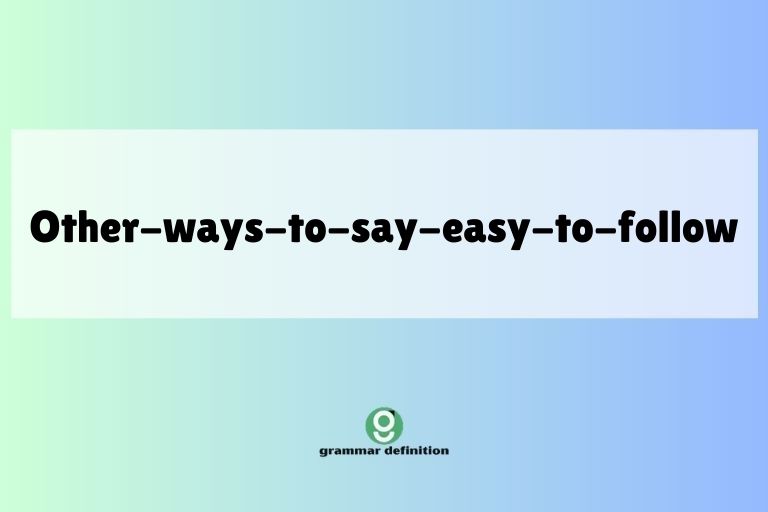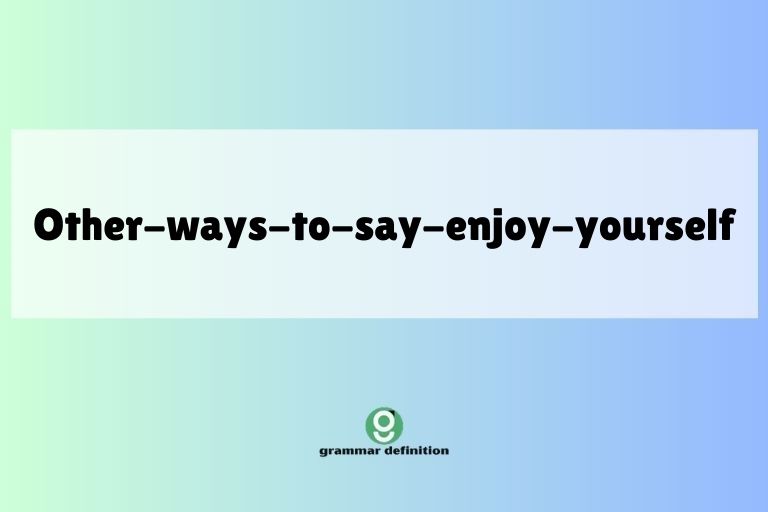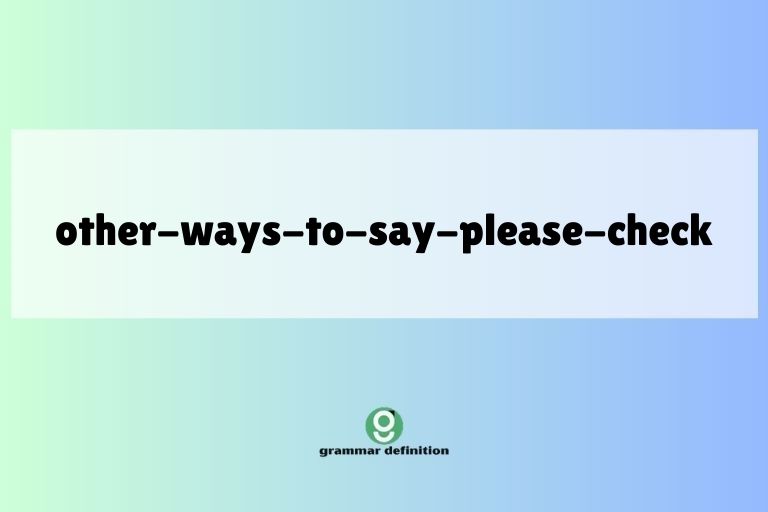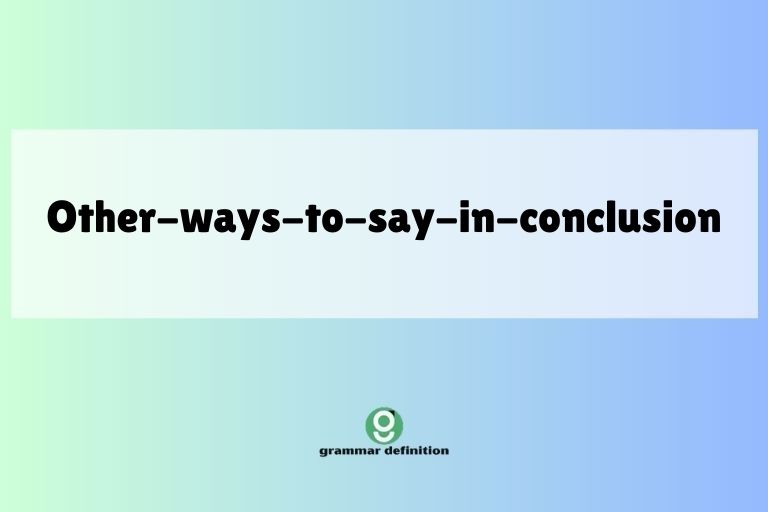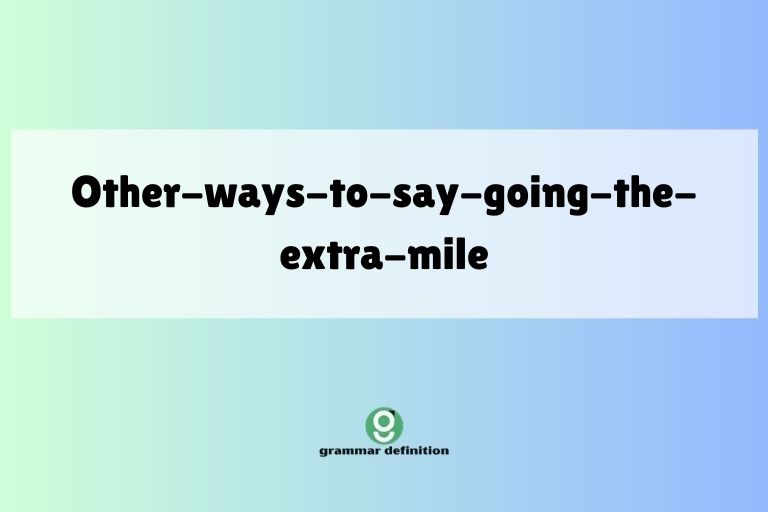Beyond “Happy for You”: Diverse Ways to Express Joy for Others
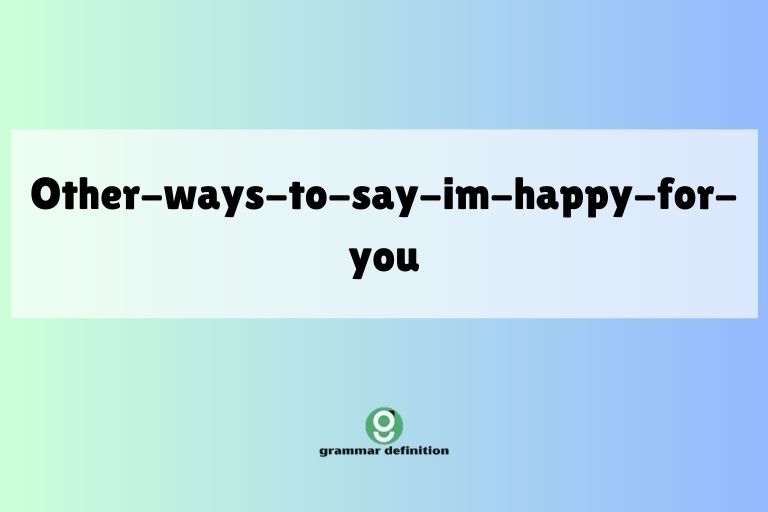
Expressing happiness for someone else’s success or good fortune is a fundamental aspect of human interaction. While “I’m happy for you” is a perfectly acceptable phrase, relying on it exclusively can limit your ability to convey the depth and nuance of your emotions.
This article explores a wide range of alternative expressions, each with its own subtle connotations and best-use scenarios. Understanding these variations allows you to communicate more effectively and authentically, enriching your relationships and enhancing your overall communication skills.
This guide is beneficial for English language learners, native speakers aiming to refine their vocabulary, and anyone seeking to express genuine happiness in a more impactful way.
By mastering these alternative expressions, you’ll be able to tailor your response to the specific situation, conveying the appropriate level of enthusiasm, support, and sincerity. Whether it’s a friend’s job promotion, a family member’s wedding, or a colleague’s successful project, you’ll have the tools to express your joy in a way that resonates with the recipient and strengthens your connection.
Table of Contents
- Introduction
- Definition: Expressing Happiness for Others
- Structural Breakdown of Expressions
- Types and Categories of Expressions
- Examples of Expressions
- Usage Rules and Considerations
- Common Mistakes to Avoid
- Practice Exercises
- Advanced Topics: Nuances and Cultural Considerations
- Frequently Asked Questions (FAQ)
- Conclusion
Definition: Expressing Happiness for Others
Expressing happiness for others involves conveying your positive emotions in response to their achievements, successes, or positive life events. It goes beyond a simple acknowledgment and demonstrates empathy, support, and genuine pleasure in their good fortune.
This expression can take many forms, ranging from formal congratulations to informal expressions of excitement and support. The key is to communicate sincerity and demonstrate that you share in their joy.
This form of expression falls under the broader category of emotional communication, which encompasses the ways we express and interpret feelings. Within this category, it specifically relates to positive emotional expression and supportive communication. It’s crucial in building and maintaining strong interpersonal relationships, fostering a sense of community, and creating a positive social environment. The ability to effectively communicate happiness for others is a valuable social skill that contributes to overall well-being.
Structural Breakdown of Expressions
The structure of expressions conveying happiness for others can vary depending on the level of formality and the specific emotion you want to convey. However, several common elements are often present:
- Exclamations: These often start with words like “Wow,” “Great,” “Fantastic,” or “Amazing” to immediately convey excitement.
- Complimentary Adjectives: Using adjectives like “wonderful,” “brilliant,” “impressive,” or “outstanding” can amplify the positive sentiment.
- Acknowledgement of Achievement: Specifically mentioning what the person achieved or is celebrating demonstrates that you’re paying attention and value their accomplishment.
- Expressions of Joy: Explicitly stating your happiness, such as “I’m so happy for you,” or using alternatives like “I’m thrilled for you,” reinforces your positive emotions.
- Offer of Support: Including a statement of support, like “I’m here for you if you need anything,” shows that you’re invested in their continued success and well-being.
- Predictions of Future Success: Expressing confidence in their future endeavors, such as “I know you’ll do great things,” can provide encouragement and motivation.
These elements can be combined in various ways to create a wide range of expressions. Here’s a simple structural template:
[Exclamation/Greeting] + [Complimentary Adjective] + [Acknowledgement of Achievement] + [Expression of Joy] + [Offer of Support/Future Prediction]
For example: “Wow, that’s amazing! Congratulations on your promotion!
I’m so thrilled for you, and I know you’ll excel in your new role.”
Types and Categories of Expressions
Expressions of happiness for others can be categorized based on their tone, level of formality, and specific emphasis. Here are some key categories:
Congratulatory Expressions
These expressions are formal and typically used to acknowledge a significant achievement or milestone. They often include the word “congratulations” or similar phrases.
Supportive Expressions
These expressions focus on offering encouragement and demonstrating your willingness to help. They emphasize your commitment to their continued success and well-being.
Enthusiastic Expressions
These expressions are characterized by high energy and excitement. They use strong adjectives and exclamations to convey a sense of joy and exuberance.
Genuine and Heartfelt Expressions
These expressions emphasize sincerity and authenticity. They convey a deep sense of empathy and demonstrate that you truly care about the person’s happiness.
Informal Expressions
These expressions are casual and relaxed, suitable for close friends and family members. They often use slang or colloquialisms to convey a sense of familiarity and warmth.
Examples of Expressions
Here are some examples of different ways to express happiness for others, categorized by the types described above. Each category includes a variety of expressions with varying levels of formality and intensity.
Congratulatory Examples
The following table provides examples of congratulatory expressions, suitable for formal and professional settings. These expressions are ideal for acknowledging significant achievements and milestones.
| Expression | Context |
|---|---|
| “Congratulations on your well-deserved success!” | Formal, professional achievement |
| “My sincere congratulations on your outstanding accomplishment.” | Formal, academic or professional context |
| “Please accept my heartfelt congratulations on your graduation.” | Formal, graduation ceremony or card |
| “I extend my warmest congratulations to you on your promotion.” | Formal, professional promotion announcement |
| “Congratulations on achieving this significant milestone in your career.” | Formal, recognizing a major career achievement |
| “We would like to offer our congratulations on your recent engagement.” | Formal, engagement announcement or card |
| “Congratulations on the successful launch of your new business.” | Formal, business launch or grand opening |
| “My congratulations to you and your family on the arrival of your new baby.” | Formal, birth announcement |
| “Congratulations on winning the award! You truly deserved it.” | Formal, award ceremony or recognition event |
| “Please accept my congratulations on your retirement. Enjoy this new chapter!” | Formal, retirement party or card |
| “Congratulations on your acceptance into the university of your choice.” | Formal, acceptance letter or celebration |
| “My sincere congratulations on your marriage. Wishing you a lifetime of happiness.” | Formal, wedding card or reception |
| “Congratulations on closing the deal! Your hard work paid off.” | Formal, business achievement |
| “We extend our congratulations on your company’s anniversary.” | Formal, celebrating a company milestone |
| “Congratulations on publishing your book! A remarkable achievement.” | Formal, book launch or author event |
| “Please accept my congratulations on your election to the board.” | Formal, political or organizational achievement |
| “Congratulations on the successful completion of your project.” | Formal, project completion celebration |
| “My heartfelt congratulations on your recovery. Wishing you continued health.” | Formal, post-illness recovery |
| “Congratulations on your citizenship! Welcome to the country.” | Formal, citizenship ceremony |
| “Please accept my congratulations on passing your exams with flying colors.” | Formal, academic achievement |
| “Congratulations on achieving your personal best in the marathon.” | Formal, athletic achievement |
| “My sincere congratulations on your successful fundraising campaign.” | Formal, charitable achievement |
| “Congratulations on your new home! Wishing you many happy memories.” | Formal, housewarming gift or card |
| “Please accept my congratulations on your artistic accomplishment. It’s truly inspiring.” | Formal, art exhibition or performance |
| “Congratulations on your promotion to senior management. A testament to your leadership.” | Formal, career advancement |
Supportive Examples
The following table provides examples of supportive expressions. These phrases emphasize your willingness to help and offer encouragement.
They are perfect for showing your commitment to the person’s continued success and well-being.
| Expression | Context |
|---|---|
| “That’s fantastic! I’m here to support you in any way I can.” | Offering practical assistance |
| “I’m so thrilled for you! Let me know if you need anything at all.” | Offering general support and assistance |
| “This is wonderful news! I’m always here to lend an ear if you need to talk.” | Offering emotional support and a listening ear |
| “I’m incredibly happy for you! Don’t hesitate to reach out if you need help with anything.” | Offering proactive support and assistance |
| “That’s amazing! I’m confident you’ll do great, and I’m here to cheer you on.” | Offering encouragement and moral support |
| “I’m so proud of you! Remember, I’m always in your corner, no matter what.” | Offering unwavering support and encouragement |
| “This is such exciting news! I’m happy to help you celebrate and support you in your next steps.” | Offering to participate in celebrations and provide future support |
| “I’m genuinely delighted for you! If there’s anything I can do to help you succeed, just ask.” | Offering specific assistance and support |
| “That’s absolutely brilliant! I’m here to offer my expertise and support whenever you need it.” | Offering professional support and expertise |
| “I’m overjoyed for you! Know that I’m always available to provide guidance and support.” | Offering mentorship and guidance |
| “This is truly wonderful! I’m happy to connect you with resources and people who can help.” | Offering networking and resource support |
| “I’m so excited for your success! I’m always here to brainstorm ideas and offer feedback.” | Offering creative and collaborative support |
| “That’s just incredible! If you need a sounding board or someone to bounce ideas off of, I’m here.” | Offering a safe space for discussion and feedback |
| “I’m so impressed with your achievement! I’m happy to provide any practical assistance you need.” | Offering hands-on support and help |
| “This is such fantastic news! I’m here to help you navigate any challenges that come your way.” | Offering problem-solving support and guidance |
| “I’m absolutely thrilled for you! I’m always available to listen and offer advice.” | Offering empathetic listening and advice |
| “That’s simply outstanding! Just remember, I’m here to celebrate with you every step of the way.” | Offering continuous support and celebration |
| “I’m so happy to see you succeed! I’m always in your corner, cheering you on.” | Offering unwavering encouragement and support |
| “This is truly remarkable! I’m here to provide any emotional support you need during this exciting time.” | Offering emotional reassurance and comfort |
| “I’m so delighted for you! I’m happy to share my experiences and insights to help you further.” | Offering mentorship and sharing knowledge |
| “That’s absolutely wonderful! Don’t hesitate to lean on me for support whenever you need it.” | Offering reliable and consistent support |
| “I’m so excited about your accomplishment! I’m here to help you celebrate and plan for the future.” | Offering both immediate celebration and future planning support |
| “This is such fantastic news! I’m always available to offer a fresh perspective and support your decisions.” | Offering objective advice and support |
| “I’m genuinely happy for your success! I’m here to help you maintain momentum and stay motivated.” | Offering ongoing motivation and support |
| “That’s just incredible! Remember, I’m always here to remind you of your strengths and celebrate your victories.” | Offering positive reinforcement and celebrating achievements |
Enthusiastic Examples
The following table provides examples of enthusiastic expressions, perfect for conveying excitement and joy. These phrases use strong adjectives and exclamations to show exuberance.
| Expression | Context |
|---|---|
| “Wow, that’s amazing! I’m so incredibly happy for you!” | Expressing immediate excitement |
| “That’s fantastic! I’m absolutely thrilled to hear that!” | Showing genuine enthusiasm |
| “This is wonderful! I’m over the moon for you!” | Expressing extreme happiness |
| “That’s brilliant! I’m so excited for what’s to come!” | Anticipating future success |
| “This is absolutely incredible! I’m bursting with joy for you!” | Expressing overwhelming happiness |
| “That’s phenomenal! I’m jumping for joy! So happy for you!” | Showing extreme excitement and happiness |
| “This is outstanding! I’m so delighted to hear your great news!” | Expressing delight and sharing in the joy |
| “That’s simply marvelous! I’m absolutely ecstatic for you!” | Expressing great pleasure and excitement |
| “This is truly exceptional! I’m so pumped about your accomplishment!” | Expressing high energy and excitement |
| “That’s utterly superb! I’m thrilled beyond words for you!” | Expressing overwhelming joy and excitement |
| “This is just sensational! I’m so exhilarated by your success!” | Expressing invigorating excitement |
| “That’s remarkably impressive! I’m so energized by your achievement!” | Expressing motivation and excitement |
| “This is exceptionally grand! I’m so cheered by your fantastic news!” | Expressing happiness and uplifting spirits |
| “That’s incredibly awesome! I’m so stoked about your success!” | Expressing enthusiasm and excitement (informal) |
| “This is extraordinarily splendid! I’m so galvanized by your achievement!” | Expressing inspiration and excitement |
| “That’s surprisingly wonderful! I’m so jazzed about your accomplishment!” | Expressing enthusiasm and excitement (informal) |
| “This is strikingly superb! I’m so amped up about your success!” | Expressing energy and excitement (informal) |
| “That’s astonishingly marvelous! I’m so keyed up about your achievement!” | Expressing anticipation and excitement |
| “This is miraculously grand! I’m so psyched about your accomplishment!” | Expressing excitement and positive anticipation (informal) |
| “That’s phenomenally awesome! I’m so pumped up about your success!” | Expressing enthusiasm and energy (informal) |
| “This is outstandingly splendid! I’m so revved up about your achievement!” | Expressing energy and excitement (informal) |
| “That’s terrifically superb! I’m so charged up about your success!” | Expressing energy and excitement |
| “This is wondrously grand! I’m so juiced up about your accomplishment!” | Expressing enthusiasm and excitement (informal) |
| “That’s beautifully marvelous! I’m so buzzed about your success!” | Expressing excitement and happiness (informal) |
| “This is charmingly splendid! I’m so wired about your achievement!” | Expressing energy and excitement (informal) |
Genuine and Heartfelt Examples
The following table provides examples of genuine and heartfelt expressions. These phrases emphasize sincerity and authenticity, showing that you truly care about the person’s happiness.
| Expression | Context |
|---|---|
| “I’m truly happy for you. You deserve all the good things coming your way.” | Expressing sincerity and deservingness |
| “My heart is filled with joy for you. I know how much this means to you.” | Expressing deep emotion and understanding |
| “I’m genuinely thrilled for you. It warms my heart to see you succeed.” | Expressing warmth and sincere happiness |
| “I’m so happy to see your dreams come true. You’ve worked so hard for this.” | Recognizing effort and achievement |
| “I’m truly delighted for you. Seeing you happy makes me happy too.” | Expressing shared happiness and connection |
| “I’m sincerely overjoyed for you. You’ve earned this success through your dedication.” | Acknowledging dedication and deservingness |
| “It fills me with happiness to see you shine. You’re an inspiration to me.” | Expressing admiration and inspiration |
| “I’m deeply touched by your success. It’s a testament to your hard work and resilience.” | Acknowledging resilience and hard work |
| “I’m genuinely pleased for you. Your positive attitude always leads to great things.” | Recognizing positive attitude and results |
| “My heart is overflowing with happiness for you. I’m so proud of your accomplishments.” | Expressing pride and overflowing happiness |
| “I’m sincerely moved by your achievement. It’s a reflection of your incredible talent and effort.” | Acknowledging talent and effort |
| “I’m truly grateful to witness your success. It’s a reminder that hard work pays off.” | Expressing gratitude and recognizing hard work |
| “It brings me so much joy to see you reach your goals. Your determination is admirable.” | Acknowledging determination and goal achievement |
| “I’m deeply touched by your accomplishment. It’s a symbol of your unwavering spirit.” | Acknowledging unwavering spirit and achievement |
| “I’m sincerely honored to share in your happiness. Your success is truly inspiring.” | Expressing honor and inspiration |
| “I’m truly blessed to see you thrive. Your positive impact is immeasurable.” | Acknowledging positive impact and thriving |
| “It warms my heart to see you flourish. Your passion and dedication are truly remarkable.” | Acknowledging passion and dedication |
| “I’m genuinely moved by your achievement. It’s a testament to your strength and perseverance.” | Acknowledging strength and perseverance |
| “I’m sincerely humbled to witness your success. Your humility and grace are truly inspiring.” | Acknowledging humility and grace |
| “I’m truly privileged to share in your joy. Your happiness is contagious.” | Expressing privilege and contagious happiness |
| “It fills me with such joy to see you achieve your dreams. You deserve all the happiness in the world.” | Expressing joy and deservingness |
| “I’m deeply touched by your journey and your success. Your story is an inspiration to us all.” | Acknowledging the journey and its inspiring nature |
| “I’m sincerely grateful to be part of your celebration. Your happiness is a gift to everyone around you.” | Expressing gratitude and the gift of happiness |
| “It brings me immense joy to see you recognized for your talents. Your hard work has truly paid off.” | Acknowledging talent and hard work |
| “I’m genuinely overjoyed to witness your triumph. Your resilience and determination are truly remarkable.” | Acknowledging resilience and determination |
Informal Examples
The following table provides examples of informal expressions, suitable for close friends and family. These phrases often use slang or colloquialisms to convey warmth and familiarity.
| Expression | Context |
|---|---|
| “Awesome! So stoked for you!” | Expressing excitement (slang) |
| “That’s rad! Congrats, dude!” | Expressing approval (slang) |
| “Sweet! Way to go!” | Expressing approval and encouragement |
| “That’s epic! So happy for ya!” | Expressing excitement (slang) |
| “You rock! Congrats on the win!” | Expressing admiration and congratulations |
| “That’s killer! So proud of you!” | Expressing admiration (slang) |
| “Way to nail it! Congrats!” | Expressing accomplishment |
| “You crushed it! Happy for you, buddy!” | Expressing accomplishment (slang) |
| “That’s legit! Congrats, girl!” | Expressing authenticity (slang) |
| “You’re killing it! Keep up the great work!” | Expressing ongoing success |
| “That’s fire! So happy for your success!” | Expressing excitement (slang) |
| “You’re on a roll! Congrats, man!” | Expressing continued success |
| “That’s dope! So proud of your achievement!” | Expressing approval (slang) |
| “You’re a star! Congrats on everything!” | Expressing admiration |
| “That’s the bomb! So happy for you, friend!” | Expressing excitement (slang) |
| “You’re a legend! Congrats on the amazing win!” | Expressing admiration (slang) |
| “That’s off the chain! So proud of your success!” | Expressing excitement (slang) |
| “You’re a boss! Congrats on the big achievement!” | Expressing admiration (slang) |
| “That’s lit! So happy for you, fam!” | Expressing excitement (slang) |
| “You’re golden! Congrats on the awesome news!” | Expressing admiration (slang) |
| “That’s the real deal! So proud of your success, pal!” | Expressing authenticity and pride (slang) |
| “You’re the best! Congrats on the well-deserved win, mate!” | Expressing admiration and congratulations |
| “That’s next level! So happy for you and your accomplishments!” | Expressing admiration (slang) |
| “You’re totally crushing it! Congrats on the amazing achievement, bud!” | Expressing accomplishment and congratulations |
| “That’s absolutely fire! So proud to see you shine, homie!” | Expressing excitement and pride (slang) |
Usage Rules and Considerations
When expressing happiness for others, it’s important to consider the following rules and guidelines to ensure your message is well-received and appropriate:
- Consider the Relationship: The level of formality should align with your relationship with the person. Use more formal expressions for colleagues, superiors, or acquaintances, and more informal expressions for close friends and family.
- Be Sincere: Authenticity is key. Your words should reflect your genuine emotions and not sound forced or insincere.
- Acknowledge the Achievement: Specifically mention the accomplishment or event you’re celebrating. This shows that you’re paying attention and value their achievement.
- Use Appropriate Tone: Match your tone to the situation. A somber or serious tone may be inappropriate for a celebratory occasion, while an overly enthusiastic tone may be inappropriate for a more subdued achievement.
- Avoid Comparisons: Never compare their achievement to your own or someone else’s. This can diminish their accomplishment and make you seem self-centered.
- Be Mindful of Cultural Differences: Different cultures may have different norms for expressing happiness. Research and be aware of any cultural sensitivities that may apply.
- Offer Support: Whenever appropriate, offer your support and assistance. This shows that you’re invested in their continued success and well-being.
- Keep it Concise: While sincerity is important, avoid rambling or going on for too long. A brief, heartfelt expression is often more effective than a lengthy speech.
- Be Timely: Express your happiness as soon as possible after learning about their achievement. This shows that you’re prompt and attentive.
- Follow up: After initially expressing your happiness, consider following up with a small gift, card, or gesture of support. This reinforces your sincerity and demonstrates your ongoing investment in their well-being.
Common Mistakes to Avoid
Here are some common mistakes people make when expressing happiness for others, along with corrected examples:
| Mistake | Corrected Example | Explanation |
|---|---|---|
| “I’m happy for you, but…” (followed by a negative statement) | “I’m so happy for you! This is a fantastic achievement, and you deserve all the recognition.” | Avoid diminishing their accomplishment with negative qualifiers. |
| “I’m happy for you, I guess.” (lacking enthusiasm) | “I’m thrilled for you! This is amazing news!” | Express genuine excitement and enthusiasm. |
| “I’m happy for you, just like I was when I…” (comparing to your own achievement) | “I’m so happy for you! This is a significant milestone, and I’m proud of your hard work.” | Avoid comparing their achievement to your own. |
| “Congratulations… finally!” (implying it took them too long) | “Congratulations! Your dedication has clearly paid off.” | Avoid implying negativity or impatience. |
| “I’m happy for you, but are you sure you can handle it?” (expressing doubt) | “I’m so happy for you! I know you have the skills and determination to excel in this new opportunity.” | Avoid expressing doubt or skepticism. |
| “I’m happy for you… I wish I had that opportunity.” (expressing envy) | “I’m incredibly happy for you! This is a well-deserved opportunity, and I’m excited to see what you accomplish.” | Avoid expressing envy or resentment. |
| “Congratulations. It’s about time!” (implying it was overdue) | “Congratulations! This is a fantastic achievement, and I’m so happy to celebrate with you.” | Avoid implying that their success was delayed. |
| “I’m happy for you… what’s in it for me?” (being self-centered) | “I’m so happy for you! How can I support you in this new endeavor?” | Avoid making their achievement about yourself. |
| “Congratulations… I knew you’d eventually succeed.” (being condescending) | “Congratulations! Your hard work and perseverance have truly paid off.” | Avoid being condescending or patronizing. |
| “I’m happy for you… but don’t get a big head.” (being cautionary) | “I’m so happy for you! Enjoy your success and celebrate your achievements.” | Avoid being overly cautious or negative. |
Practice Exercises
Test your understanding of expressing happiness for others with these practice exercises. Choose the most appropriate expression for each scenario.
Exercise 1: Choosing the Right Expression
Select the best option to express happiness in each scenario:
| Scenario | Options | Answer |
|---|---|---|
| Your colleague gets a promotion. | a) “I’m happy for you.” b) “Congratulations on your well-deserved promotion!” c) “Good for you.” | b) “Congratulations on your well-deserved promotion!” |
| Your friend gets engaged. | a) “That’s cool.” b) “I’m happy for you.” c) “I’m so thrilled for you! Congratulations!” | c) “I’m so thrilled for you! Congratulations!” |
| Your sibling graduates from college. | a) “Okay.” b) “Congratulations! I’m so proud of you!” c) “Finally!” | b) “Congratulations! I’m so proud of you!” |
| Your teammate wins an award. | a) “Nice.” b) “Congratulations! You deserved it.” c) “I’m happy for someone.” | b) “Congratulations! You deserved it.” |
| Your neighbor starts a new business. | a) “Good luck.” b) “Congratulations on your new venture! I wish you all the best.” c) “Whatever.” | b) “Congratulations on your new venture! I wish you all the best.” |
| Your child gets accepted to their dream school. | a) “That’s alright.” b) “I’m happy for you.” c) “I’m so incredibly proud of you! Congratulations!” | c) “I’m so incredibly proud of you! Congratulations!” |
| Your spouse gets a raise at work. | a) “That’s okay.” b) “Congratulations, honey! I’m so happy for you.” c) “So?” | b) “Congratulations, honey! I
m so happy for you.” |
Exercise 2: Rewriting Expressions
Rewrite the following expressions to make them more genuine and enthusiastic:
- Original: “I’m happy for your success.”
Rewritten: “I’m absolutely thrilled about your success! You’ve worked so hard, and it’s wonderful to see it pay off.” - Original: “Good job on the promotion.”
Rewritten: “Congratulations on the promotion! That’s fantastic news, and I know you’ll do great in your new role.” - Original: “Okay, congrats on graduating.”
Rewritten: “Congratulations on graduating! I’m so proud of everything you’ve accomplished, and I’m excited to see what’s next for you.” - Original: “Happy to hear you won the award.”
Rewritten: “I was so excited to hear you won the award! You truly deserve it, and I’m incredibly happy for you.” - Original: “Cool, you started a business.”
Rewritten: “That’s awesome that you started a business! I wish you all the best and I’m here to support you in any way that I can.”
Advanced Topics: Nuances and Cultural Considerations
Expressing happiness for others involves more than just choosing the right words; it also requires understanding the nuances of social context and cultural norms. Here are some advanced topics to consider:
- Understanding Implicit Communication: Sometimes, happiness is conveyed through non-verbal cues such as body language, facial expressions, and tone of voice. Being aware of these cues can help you interpret the sincerity of an expression.
- Cultural Differences in Expressing Emotion: Different cultures have varying degrees of emotional expressiveness. Some cultures value overt displays of emotion, while others prefer more subtle expressions. Be mindful of these differences when communicating with people from different cultural backgrounds.
- Navigating Sensitive Situations: In some cases, expressing happiness may be inappropriate or insensitive. For example, if someone is experiencing a loss or hardship, it may be more appropriate to offer condolences or support rather than expressing happiness for their achievements.
- Using Humor Appropriately: Humor can be a great way to express happiness, but it’s important to use it judiciously. Avoid making jokes that could be offensive or insensitive, and be sure that your humor is appropriate for the context and your relationship with the person.
- Expressing Happiness in Writing: When expressing happiness in writing, pay attention to your tone and word choice. Use emojis or exclamation points sparingly, as they can sometimes come across as insincere or unprofessional.
- Adapting to Different Personalities: Some people are more receptive to enthusiastic expressions of happiness, while others prefer more understated expressions. Tailor your approach to the individual’s personality and preferences.
Frequently Asked Questions (FAQ)
-
Is it always necessary to express happiness for others?
- While it’s not always mandatory, expressing happiness for others is generally a positive social behavior that strengthens relationships and fosters goodwill. However, be genuine and avoid forced expressions.
-
How can I tell if someone is genuinely happy for me?
- Look for signs of sincerity in their words, tone of voice, and body language. Genuine expressions of happiness are often accompanied by enthusiasm, empathy, and a willingness to offer support.
-
What if I’m not genuinely happy for someone?
- It’s okay not to be genuinely happy for someone, especially if you’re feeling envious or resentful. In such cases, it’s better to offer a neutral or supportive response rather than a forced or insincere expression of happiness. You could say something like, “That’s interesting news,” or “I hope it works out well for you.”
-
How can I express happiness for someone who is usually negative or pessimistic?
- With someone who is typically negative, focus on the positive aspects of their achievement and offer encouragement. Avoid overly enthusiastic expressions, as they may come across as insincere. A simple, heartfelt “That’s great news! I’m glad things are working out for you” can be effective.
-
What is the best way to express happiness for someone who is more introverted?
- For introverted individuals, a more understated and sincere expression of happiness is often best. Avoid overwhelming them with enthusiasm or attention. A simple “I’m really happy for you” or “That’s wonderful news” can be very effective.
-
How do I avoid sounding insincere when expressing happiness?
- Focus on being genuine and authentic in your expression. Acknowledge the specific achievement, use a tone of voice that matches your words, and offer your support if appropriate. Avoid generic phrases or clichés that can come across as insincere.
-
What are some alternative ways to show happiness besides verbal expressions?
- Non-verbal ways to show happiness include giving a thoughtful gift, writing a heartfelt card, offering practical assistance, or simply being present and supportive during their celebration.
-
Is it appropriate to express happiness for someone’s success on social media?
- Yes, expressing happiness on social media is generally appropriate, but be mindful of the context and your relationship with the person. A simple “Congratulations!” or “That’s amazing!” can be effective, but avoid overly personal or effusive expressions that may be better suited for a private message.
Conclusion
Mastering the art of expressing happiness for others is a valuable skill that enhances your communication, strengthens relationships, and contributes to a positive social environment. By understanding the different types of expressions, considering the context and cultural nuances, and practicing genuine communication, you can effectively convey your joy and support for others’ achievements.
Remember that sincerity and authenticity are key, and your words should reflect your true emotions. With a little effort and awareness, you can become a more effective and empathetic communicator, enriching your interactions and fostering deeper connections with those around you.

